Dominican Republic Livestock Extension Service develops and validates strategic plan
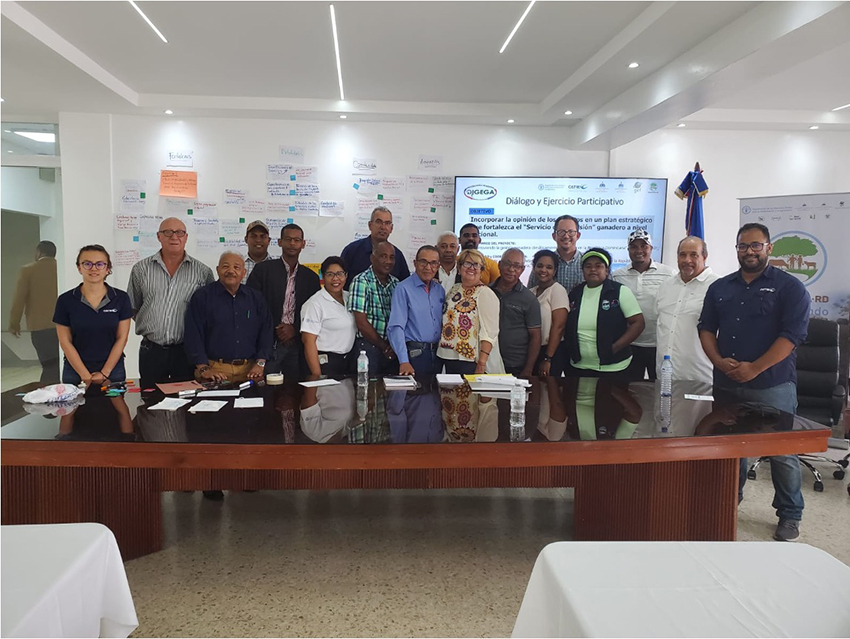
- The objective is to improve the adoption of climate compatible good farming practices in the cattle sector.
December 20, 2022. Within the framework of the project Promoting Climate-Smart Livestock in the Dominican Republic (GANACLIMA-DR), between September and December, a national consultation process was carried out with key organizations related to the livestock sector, in order to diagnose the current situation of the Livestock Extension System and propose a strategic plan to strengthen the capacities ofMEGALECHE, an extension program through which the General Directorate of Livestock (DIGECA), of the Ministry of Agriculture, provides technical assistance to the country's milk producers.
The diagnosis was carried out using a specific methodology based on the SWOT analysis (strengths, weaknesses, opportunities and threats) proposed and implemented by specialists from the Livestock and Environmental Management Unit of CATIE (Tropical Agricultural Research and Higher Education Center).
The consultation process included interviews with authorities from institutions linked to the sector such as DIGEGA, the National Committee for the Regulation and Promotion of the Dairy Industry (CONALECHE), the Association of Milk Producers (APROLECHE, its Spanish acronym), the Livestock Federations of the Northwest (FEDEGANO, its Spanish acronym), the North (FEDEGANORTE), the South (FEDEGASUR) and the East (FEDEGARE); as well as the Agricultural Bank (BAGRÍCOLA, its Spanish acronym), the Dominican Institute of Agricultural and Forestry Research (IDIAF, its Spanish acronym), the Ministry of the Environment and Natural Resources (MARENA), the Autonomous University of Santo Domingo (UASD, its Spanish acronym), the Higher Institute of Agriculture (ISA, its Spanish acronym) and technical staff of the MEGALECHE program; in addition, cattlemen and cattlewomen associations from different regions of the country were consulted.
After analyzing the information, a strategic proposal for MEGALECHE was developed in alignment with DIGEGA and CONALECHE, the principles of climate-smart livestock farming (GCI) and cross-cutting approaches to gender and youth.
As a result, a mission and vision were obtained with a view to responding to the situational analysis and its institutional contribution:
- Mission: to be a modern, efficient, relevant and inclusive extension system in capacity building and technology transfer that will increase climate resilience, economic competitiveness and environmental sustainability of livestock production systems.
- Vision: To have the livestock sector adopt good livestock practices compatible with GCI through capacity building with a view to improving production, economic and environmental indices.
To achieve the mission and vision, four interrelated and mutually reinforcing strategic axes were proposed to strengthen capacities, improve technology transfer and increase the rate of adoption of good farming practices:
- Expanded national coverage and trained personnel
- Efficient logistics and operations
- Coordinated services to enhance the adoption of good farming practices
- Knowledge Management Unit and modern, automated Monitoring and Evaluation System
Felipe Peguero, researcher at CATIE's Livestock and Environmental Management Unit, explained that with greater coverage of extension personnel at the national level, coupled with a higher level of technical and administrative capacity, it will be possible to increase the frequency and efficiency of training and follow-up visits to on-farm interventions. Such activities could be effectively monitored with a modern, automated monitoring and evaluation system.
In turn, together with the monitoring and evaluation system and a knowledge management unit, it will be possible to generate real-time feedback reports for decision-making by authorities, technical personnel and livestock groups, improving the effectiveness of work in the field. In addition, the monitoring and evaluation system would generate information for interinstitutional coordination and alignment of impact research efforts, soft financing and incentives for the adoption of good livestock farming practices.
During the socialization and validation process, Peguero presented the strategic approach for MEGALECHE, the strategic objectives and the strategic proposal document, from which feedback was received.
"We feel very satisfied with this work. The strategic axes and objectives align very well with our POA and our vision. Our next step is to share this work with the authorities of DIGEGA and CONALECHE so that they are aware of the SWOT analysis of the MEGALECHE program, and finally, in order to obtain budgetary support from the authorities, it is very important to understand the cost-benefit relationship that the extension program generates for the country," said Martín Canals, director of the MEGALECHE program.
Finally, Daniel Valerio, coordinator of the GANACLIMA-DR Program, said that the Food and Agriculture Organization of the United Nations (FAO) will continue to support the strengthening of the livestock extension service and livestock farming in general. "The FAO team in the Dominican Republic is very satisfied with the work carried out by CATIE, as evidenced by the thoroughness of the analysis and the strategic proposal presented," said Valerio.
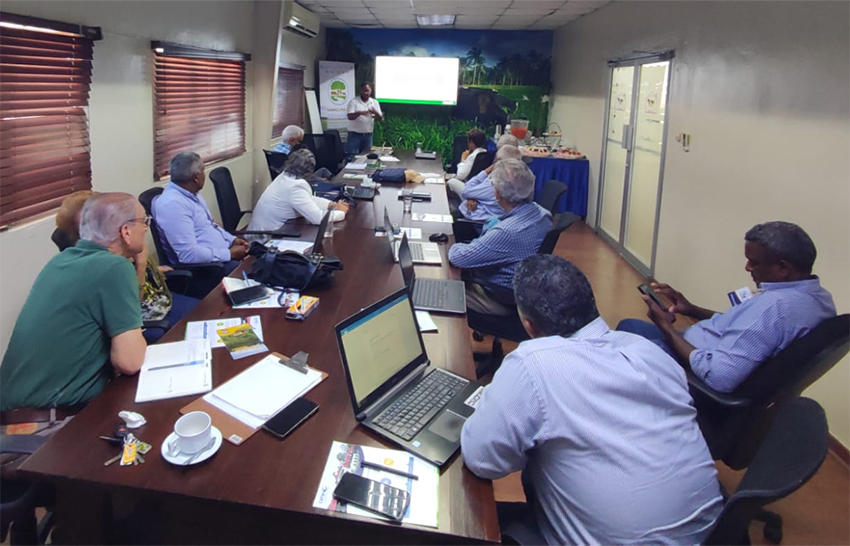
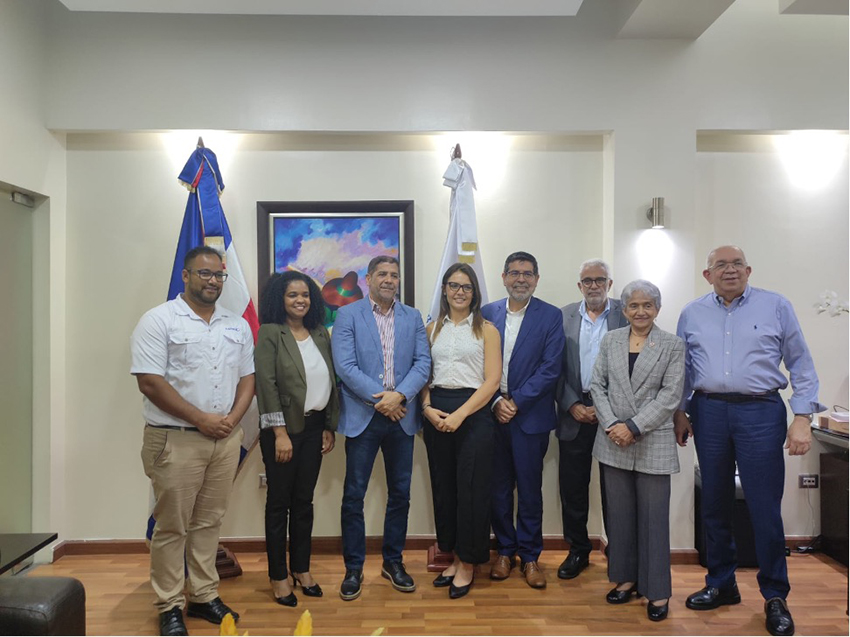
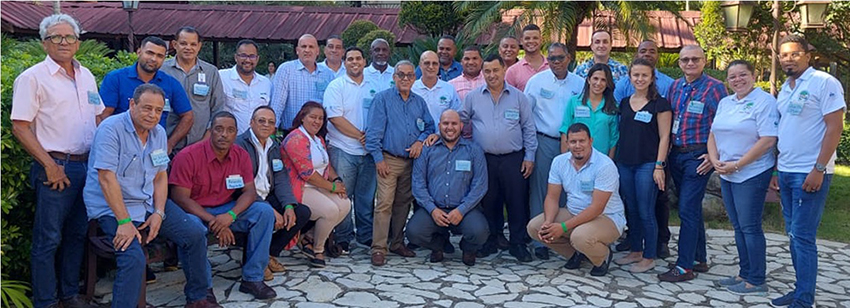
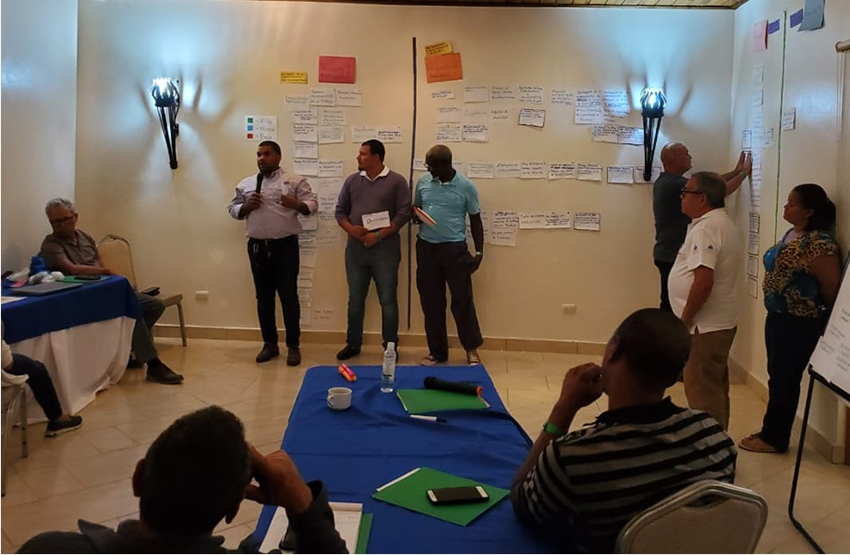
More information and written by:
Felipe Peguero
Professor and specialist in Agricultural Economics and Climate Finance
Livestock and Environmental Management Unit
CATIE
Daniel Valerio
Coordinator of the GANACLIMA-RD Program
FAO



